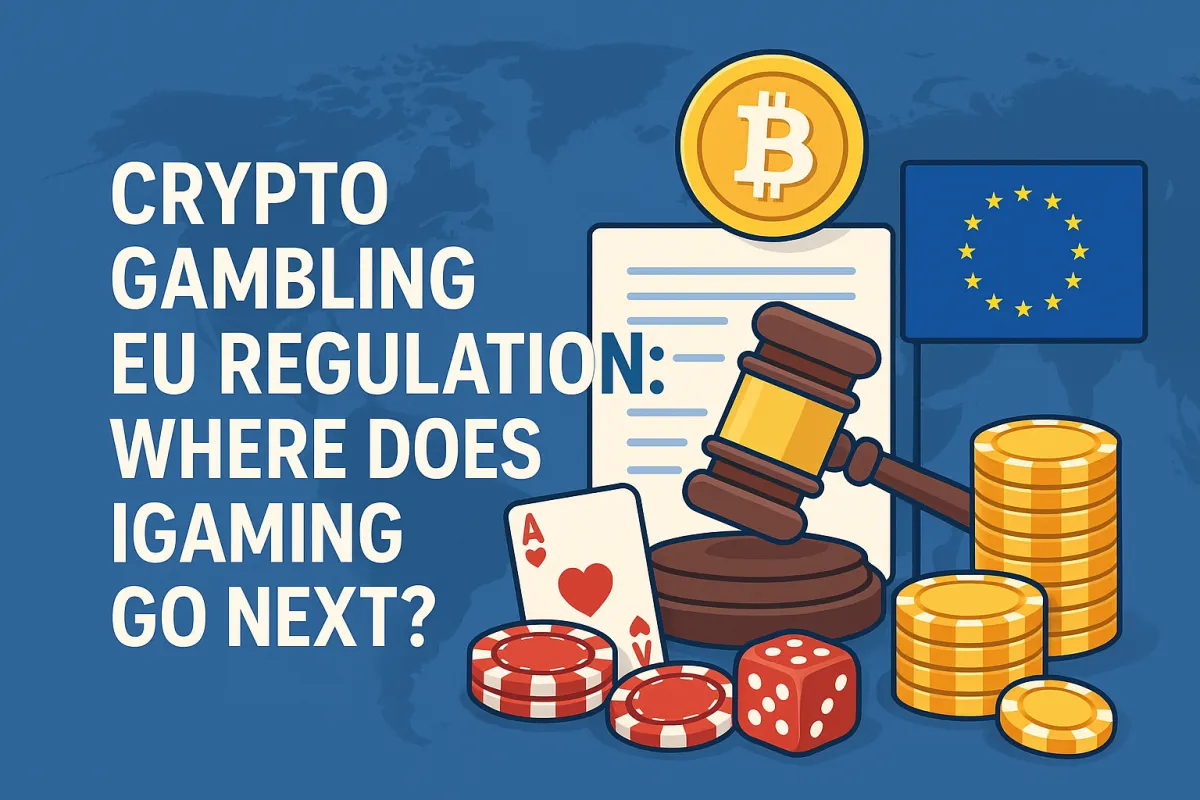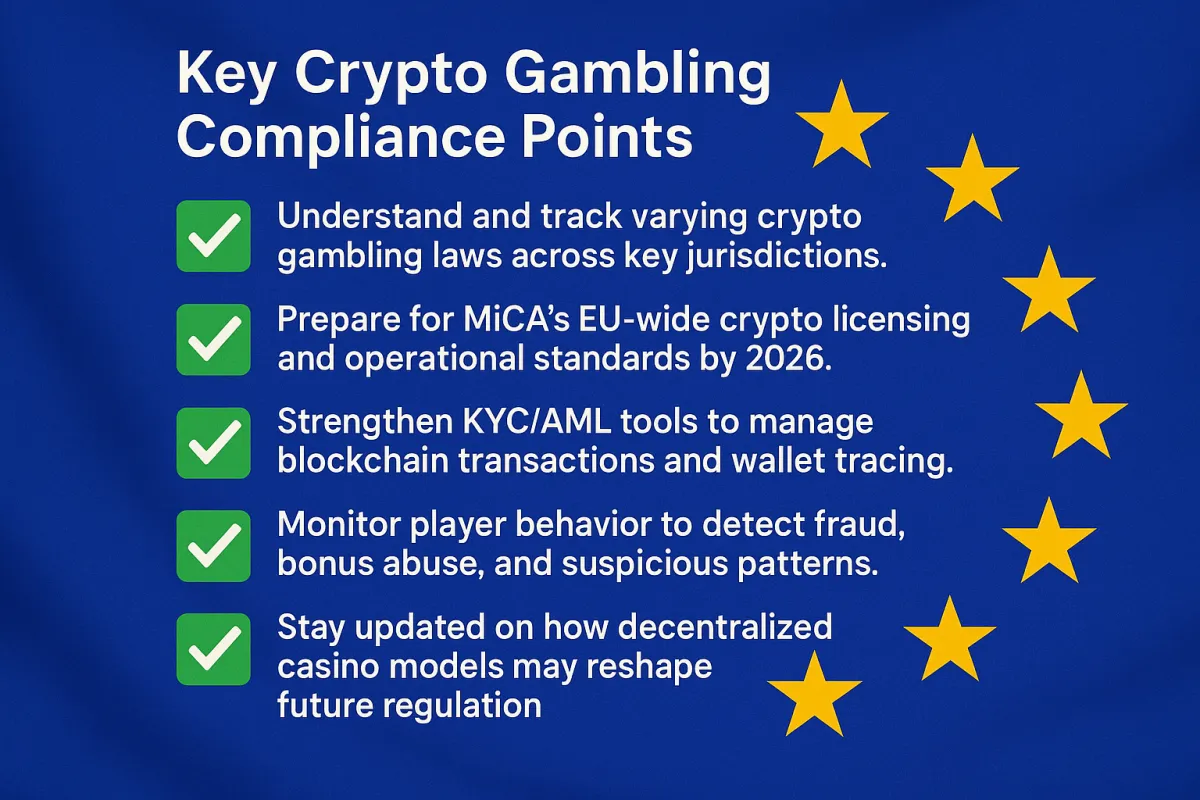Crypto Gambling Regulation: Where Does iGaming in the EU Go Next?

Crypto gambling in Europe is going to a new phase as the rules become clearer. MiCA aims to protect players, reduce scams, and guide bettors. Players may face more checks, but they could gain trust and stronger partnerships for growth.
Global Regulatory Overview

- Different countries have their own rules for crypto gambling, which makes it hard for bettors and operators to follow one system.
- Europe is leading with MiCA, a plan to make crypto use safer and easier across all countries in the EU, starting from 2026.
- MiCA introduces a licence passport that lets companies operate across the EU without many approvals.
- The UK treats crypto differently and is still working on stablecoin rules, so many operators face checks and limits.
- Malta has added blockchain and virtual asset rules through the MGA, which makes it easier and safer for casinos to use crypto.
In the United States, regulations are indeed lacking. Wyoming is supportive of businesses using blockchain structures, making it easy for crypto gambling. New York’s BitLicense remains strict and costly and does not allow most crypto gambling platforms to operate there.
MiCA’s Impact on Crypto Casinos
- Casinos using crypto in the EU must follow the rules to stay licensed and to be able to operate.
- They need to hold reserves, pass audits, and offer protection for players.
- Players may have to share more personal documents.
- These can help casinos build better relationships with banks and payment companies.
Compliance Challenges
- KYC and AML systems are finding it hard to keep up with crypto activity.
- Bettors now need to track wallet transfers under the rule of Traveling.
- The behaviors of players must be followed closely to spot any pattern.
- Fraud detection tools are now used to catch suspects faster.
Main threats could also be bonus abuse, stolen accounts, and people working together to cheat betting companies.
Decentralized Casinos and the Future

Casinos that run on blockchain are challenging gambling rules. Regulators are shifting from when companies should be regulated to checking how to do it. The goal is to find a balance between transparency, privacy protection, and responsible betting, shaping the next stage of crypto gambling.